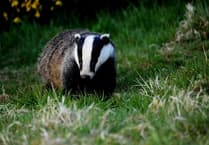OLD Cleeve First School, Washford, has significant strengths, effective leadership and hard-working pupils, according to the school's most recent Ofsted report.
The findings are a stark contrast to a damning report almost two years ago which saw the school put on 'special measures' for failing to give pupils an acceptable quality of education.
But over the last 18 months, new headteacher Christine Stamp has turned the school around and the special measures status was revoked in April this year.
The full report, which saw Government inspectors radically alter their opinion of the once-failing school, was officially made public this week.
In it, Mrs Stamp, her staff, governors, pupils and parents are all praised for their commitment to the school.
And the inspectors found the school had made good progress in the four key areas highlighted for improvement.
Standards of attainment had been increased, largely due to the hard work of staff, while unsatisfactory teaching had been eradicated and was now deemed to be "fully satisfactory".
The quality of leadership had improved and, in turn, had raised standards and improved pupils' behaviour.
Attendance levels had also improved by nearly two per cent over the last two years.
At the time the inspector's initial findings were made available to the school in April, chairman of the school's board of governors, Christos Yianni, said the school had passed with flying colours.
He added: "Special measures is a devastating judgement and unless your school has been through the trauma it is very difficult to describe.
"The work by Chris Stamp and all her staff has been immense. Their efforts more than anything else have helped our school to convince Ofsted that Old Cleeve is a very good school with many strengths."
The original 2000 Ofsted report said the school had failed to address problems first highlighted the previous year and singled out poor teaching as a major cause.
At the time, the inspector stated: "The quality of teaching has worsened and the school is failing to give its pupils an acceptable quality of education.
"The school's capacity to improve cannot be assured."
Now, however, the inspectors have concluded that "good progress" had been made "in remedying the weaknesses identified in November 2000" and that the school had developed "a significant number of strengths".
The report stated: "The headteacher provides effective leadership. She has made a determined and productive commitment to improving the quality of education in the school.
"The headteacher has appraised the school's performance systematically and incisively and this has led to a purposeful agenda for change.
"The staff have worked hard to play their part in improving the standards achieved and the quality of education.
"The chairman of governors has made a substantial commitment to ensuring that the school has moved forward. The governors are well organised and have supported the school steadily."
The inspectors noted that the school's key stage one results for 2001 were well above the national average and a significant improvement on the previous year.
However, they felt a below average proportion of pupils had achieved higher levels in writing.
There were also concerns about the lack of challenges set for higher attaining pupils but, on the whole, there was praise all round for the quality and variety of teaching.
Lower attaining and average attaining pupils made "sound" progress, standards in English were continuing to improve, and pupils' knowledge of numbers was in line with national expectations.
Standards in ICT were on the up, attainment in science was in line with national standards, pupils' attitudes to learning was positive and their behaviour both in and out of lessons was deemed to be "satisfactory".
There was praise, too, for the school's teaching assistants, who played a "valuable part in supporting" pupils.
Standards were found to be "consistently good" in the nursery and the school had conducted its own tests to monitor the performance of the oldest pupils.
OId Cleeve had also hosted a day for able mathematicians, continued to monitor the progress of both boys and girls individually and conducted "regular insightful assessments" of pupils' writing.
A parents' consultation evening had been well attended and an open afternoon had given parents, governors and the local community the chance to see staff and pupils at work.
Of the school's 77 pupils, the inspectors said: "The pupils attitudes to learning are positive.
"Many pupils are keen to share their ideas and show obvious pleasure when they succeeded at their tasks."
However, staff were urged to "focus more systematically" on improving pupils' concentration, especially at the beginning and end of lessons.
The inspectors concluded: "Assessment is thorough and its results are productive.
"Early in the process of special measures, the headteacher initiated robust assessment measures, which have since been extended and involve all members of staff.
"End-of-year tests are analysed to establish the pupils' specific weaknesses.
"The headteacher and staff are aware of areas of learning that they need to target and of where their efforts have been rewarded in the longer term by improvements in the standards achieved."
They continued: "The staff team have benefited from the clear supportive and energetic leadership of the headteacher, but each member of staff has worked hard to play their part in improving the standards achieved and the quality of education.
"The programme of improvements to planning, to assessment and, particularly, to managing behaviour has been implemented well by all staff.
"There is good teamwork by the staff, both teaching and non-teaching, to ensure that the school runs smoothly and is a welcoming and stimulating place to be."
The inspectors said the school will need to continue to raise standards of attainment in English, mathematics and science, extend learning resources for literacy and ICT and develop pupils' ability to concentrate to ensure it maintains its good standing with Ofsted.
Photo: Steve Guscott.




